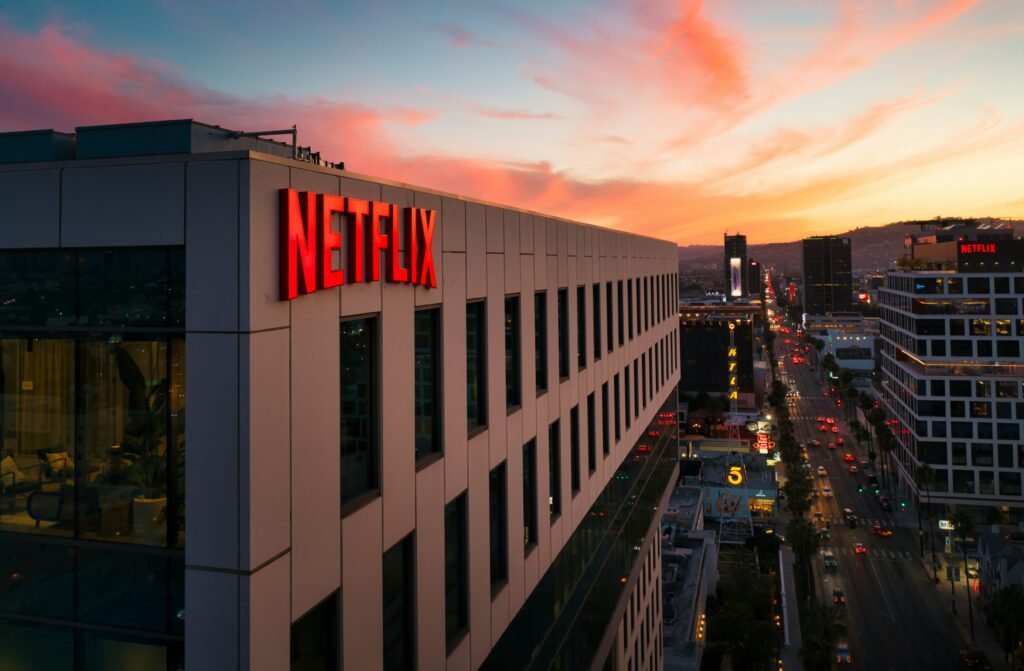Importance of Local SEO for Restaurants
Enhancing Visibility
Local SEO is crucial for restaurants aiming to improve their online presence and attract more customers. Google uses factors like relevance, distance, and prominence to determine local rankings. Prominence, influenced by reviews, ratings, and online information, plays a significant role. For restaurants, this means that better SEO practices can lead to higher local rankings, making it easier for potential customers to find them.
A restaurant’s brand visibility can be amplified by engaging in activities that boost its online presence. Social media is a great tool for this. Although social media engagement might not directly impact SEO rankings, active participation can drive traffic to a restaurant’s website and reach a broader audience (social media marketing for restaurants). This can lead to more local searches and higher prominence in Google’s ranking algorithm.
Driving Local Traffic
Local searches, particularly on platforms like Google Maps, are integral to driving both online traffic and foot traffic to restaurants (mobile marketing for restaurants). In 2022, 46% of consumers preferred to buy from brands with a local presence, and 87% used Google to evaluate local businesses.
| Metric | Statistic |
|---|---|
| Consumer preference for local purchases | 46% |
| Consumers using Google to evaluate local businesses | 87% |
Encouraging customer reviews, interactions, and social mentions can further enhance a restaurant’s search engine ranking score. Responding to feedback and engaging with customers shows a commitment to customer satisfaction. This not only boosts prominence but also nurtures loyalty among current customers while attracting new ones (online reputation management for hotels).
In addition, effective use of SEO can be a cost-effective strategy compared to paid advertising campaigns. By focusing on unpaid growth and long-term results, restaurants can achieve higher returns on investment (ROI) in the long run.
Investing in local SEO helps restaurants to not only be discovered by more customers but also engage with them effectively, ensuring sustained growth and success in a competitive market.
Factors Influencing Local Rankings
Achieving high local rankings is essential for any restaurant aiming to attract more patrons. Google uses three main factors to determine local rankings: relevance, distance, and prominence.
Relevance, Distance, and Prominence
Relevance, distance, and prominence are crucial in local SEO for restaurants. Understanding these factors helps restaurants position themselves better in search results.
Relevance: This refers to how well a business matches the search intent of the user. Ensuring that the restaurant’s Google Business Profile is fully optimized with accurate keywords related to the cuisine, location, and unique features can enhance relevance. See our guide on optimizing Google Business Profile.
Distance: This is the proximity of the business to the location specified in a search. The closer a restaurant is to the searcher’s specified location, the better chances it has of appearing in local search results.
Prominence: Prominence depends on how well-known a business is both online and offline. Factors such as the number of reviews, average ratings, and mentions across the web play a significant role. The better the reputation and online presence of the restaurant, the higher its prominence (Google Support). Here’s a more detailed breakdown:
| Factor | Description |
|---|---|
| Relevance | Alignment with search intent |
| Distance | Proximity to the searcher’s stated location |
| Prominence | Online and offline recognition, reviews, and web mentions |
Using best SEO practices can improve all three factors, ultimately aiding in higher local rankings.
Significance of Business Reviews
Business reviews significantly influence local SEO. Positive reviews and high ratings can enhance a restaurant’s credibility and attractiveness to potential patrons.
Online Reputation: Positive reviews on Google and other platforms can boost a restaurant’s prominence. Nearly half (46%) of all Google searches are from users seeking local information (Cuboh). Managing and responding to reviews promptly can enhance customer experience and reputation. Visit our article on online reputation management for hotels for strategies that can be applied to restaurants as well.
SEO Influence: Reviews also have an SEO impact. Search engines consider the quantity and quality of reviews when determining rankings. Employing platforms like Yelp, TripAdvisor, and Google Business Profile can aid in collecting more reviews.
Customer Decision-Making: Reviews play a critical role in how potential customers decide on dining options. With 62% of consumers using Google to research restaurants (SEMrush), having a substantial number of positive reviews can sway their decision in favor of your restaurant.
Encouraging customers to leave reviews and managing them effectively can significantly influence rankings. For tips on managing reviews effectively, see hospitality marketing strategies.
The proper use of relevance, distance, and prominence, combined with effective management of business reviews, can vastly improve the local SEO standing of restaurants. Leveraging these factors can help restaurants attract more local traffic and ultimately increase their bookings and customer loyalty.
Tools for Mobile Optimization
Effective mobile optimization is crucial for the success of local SEO for restaurants. Utilizing the right tools can significantly enhance a restaurant’s online visibility, ensuring it reaches more potential customers. Two key tools for mobile optimization are AIOSEO and Google’s PageSpeed Insights.
AIOSEO for SEO Improvement
AIOSEO is a popular tool used by around 3 million people to improve their SEO efforts (AIOSEO). With thousands of 5-star reviews, it provides clear, actionable steps for optimizing websites, which is particularly beneficial for readability on mobile devices. AIOSEO offers features such as:
- Readability Checks: Ensures your content is easily digestible on mobile screens.
- SEO Audit Checklist: Helps you identify and fix common SEO issues.
- On-Page SEO Analysis: Evaluates your content for SEO best practices.
By addressing SEO improvements with AIOSEO, restaurants can significantly enhance their local SEO efforts.
Google’s PageSpeed Insights
Google’s PageSpeed Insights is another valuable tool for mobile optimization. It provides a score from 0 to 100, evaluating your website’s performance on both mobile and desktop devices. The tool offers detailed suggestions for improvement, such as:
- Reducing Page Load Time: Faster loading times keep users engaged and reduce bounce rates.
- Optimizing Images: Properly sized images increase speed and enhance user experience.
- Minifying CSS, JavaScript, and HTML: Helps in reducing load times and improving performance.
Here is a sample score breakdown:
| Metric | Mobile Score | Desktop Score |
|---|---|---|
| Overall Score | 85 | 90 |
| Reduce Page Load | ✔ | ✔ |
| Optimize Images | ✔ | ✔ |
| Minify Resources | ✔ | ✔ |
Combining AIOSEO with Google’s PageSpeed Insights can greatly enhance the mobile optimization of a restaurant’s website.
By focusing on these tools, hotel owners, resort managers, and marketing professionals can ensure they are maximizing their local seo for restaurants efforts, ultimately driving more traffic and increasing bookings. For further insights, explore our resources on digital marketing for hotels and mobile marketing for restaurants.
Leveraging Mobile App Interactions
Twilio Segment for Tracking
Twilio Segment is a powerful tool for tracking mobile app interactions, enabling restaurant owners and marketers to gather detailed insights into customer behavior. By utilizing Twilio Segment, they can optimize their mobile apps’ performance and tailor their marketing strategies accordingly.
Twilio Segment allows tracking of various user actions within the app, such as menu browsing, ordering, and payment processes. This data can be used to identify patterns and improve the user experience. For instance, if a significant number of users abandon their order at a specific step, it may indicate a problem that needs to be addressed.
| Action | Percentage of Users |
|---|---|
| Browsing Menu | 80% |
| Starting Order | 60% |
| Completing Order | 50% |
| Abandoning Order | 10% |
By analyzing this data, restaurant owners can implement targeted improvements. For example, if 10% of users abandon their orders, simplifying the checkout process could reduce this number.
For more information on how to implement effective tracking and analytics, check out our guide on mobile marketing for restaurants.
Impact on SEO and Conversions
The insights gained from Twilio Segment can directly impact SEO and conversions. By optimizing the app’s performance based on user behavior, restaurants can improve engagement and retention rates. This enhanced user experience often leads to positive reviews and ratings, crucial for online reputation management for hotels.
Additionally, behavior-based marketing strategies can be developed. Understanding user preferences allows restaurants to personalize promotions and offers, increasing the chances of conversion. For example, if a user frequently orders a specific dish, a personalized discount on that item could incentivize repeat business.
| Metric | Before Optimization | After Optimization |
|---|---|---|
| Conversion Rate | 5% | 7% |
| Average Rating | 4.0 | 4.5 |
| App Retention Rate | 70% | 80% |
Improving these metrics through strategic enhancements can lead to higher visibility in search engine results. Positive user interactions and reviews play a significant role in local search rankings. As noted by BrightLocal, 93% of consumers consider reviews when selecting a restaurant, emphasizing the importance of maintaining a positive online reputation.
For further details on implementing effective digital marketing strategies, refer to our section on digital marketing for hotels. By leveraging tools like Twilio Segment and focusing on user experience, restaurant owners can drive local traffic and enhance their SEO efforts, ultimately boosting conversions and loyalty.
App Store Insights with Sensor Tower
In the realm of local SEO for restaurants, understanding how your mobile app performs can provide critical insights into user behavior and competitive positioning. Sensor Tower is a powerful platform that offers comprehensive data on app store rankings, user behavior, and competitor analysis, which can significantly impact your mobile SEO efforts (AIOSEO).
Understanding User Behavior Data
Sensor Tower helps restaurant owners and marketing professionals analyze user behavior for their mobile apps. It provides data on user engagement metrics, such as downloads, active users, session lengths, and retention rates. This information is vital for understanding how users interact with your app and identifying areas for improvement.
| Metric | Description | Importance |
|---|---|---|
| Downloads | Number of times the app is installed | Indicates app popularity |
| Active Users | Number of users engaging with the app | Measures engagement levels |
| Session Length | Average duration of user sessions | Evaluates user interest |
| Retention Rates | Percentage of users returning to the app | Assesses user satisfaction |
By leveraging this data, restaurant owners can make data-driven decisions to enhance user experience, potentially boosting app store rankings and driving more local traffic to their establishments. For more on how user reviews impact search engine rankings, see our online reputation management for hotels.
Competitor Analysis
Sensor Tower also offers robust tools for competitor analysis, allowing you to monitor how other restaurant apps are performing in the app stores. This feature includes insights into competitors’ download trends, user reviews, and keyword rankings, helping you to identify market gaps and opportunities.
| Feature | Benefit |
|---|---|
| Download Trends | Understand competitors’ popularity over time |
| User Reviews | Gain insights into customer feedback and pain points |
| Keyword Rankings | Identify effective keywords used by competitors |
Using these insights, restaurant marketing professionals can optimize their own app listings to improve on-page and off-page SEO, thereby enhancing visibility on app stores and search engines. This, in turn, can drive more local traffic to your restaurant via organic search. For more on boosting visibility through digital marketing, explore our hospitality marketing strategies.
By incorporating Sensor Tower into your mobile marketing efforts, you can gain a competitive edge, attract more local customers, and ultimately enhance the success of your restaurant’s online presence. For additional strategies on how to leverage mobile marketing, visit mobile marketing for restaurants.
Strategies for Local SEO Success
To achieve effective local SEO for restaurants, focusing on two main strategies can significantly enhance visibility and increase customer traffic: building citations and domain authority and optimizing the Google Business Profile.
Building Citations and Domain Authority
Citations are online mentions of a business’s name, address, and phone number (NAP). They can occur on business directories, social media platforms, and review websites. Building citations on popular review websites can significantly improve a restaurant’s domain authority and enhance local SEO marketing. Over 70% of people consider a website reputable if it appears on business directories (BrightLocal).
| Benefits of Building Citations | Impact |
|---|---|
| Increased Domain Authority | Enhances local search rankings |
| Improved Consumer Trust | 70% of people find businesses in directories reputable |
| Higher Online Visibility | Lists restaurant in multiple search results |
Consistent and accurate NAP information across various platforms is crucial for higher local search rankings. Regularly update business details on popular citation sites like Yelp, TripAdvisor, and OpenTable.
For further insights on increasing domain authority, consult our detailed article on seo for hospitality industry.
Optimizing Google Business Profile
Google Business Profile (GBP) is a free listing tool that displays essential information about the restaurant, including location, images, and reviews. This tool enhances visibility and accessibility for potential customers searching for restaurants or similar businesses on Google (SEMrush).
Key steps to optimize GBP:
- Claim and Verify Your Profile: Ensure your business information is verified by Google.
- Complete All Sections: Fill out every detail, including operating hours, contact information, and high-quality images.
- Encourage and Manage Reviews: Reviews play a crucial role in local restaurant SEO. Google’s local ranking algorithms consider review scores and their quantity. Engaging positively with reviewers can influence search engine rankings and build customer trust. Learn more about online reputation management for hotels.
- Use Keywords Strategically: Incorporate relevant keywords in your business description to improve search visibility.
| GBP Optimization Tips | Purpose |
|---|---|
| Complete Profile | Provides comprehensive information to customers |
| High-Quality Images | Attracts more views and enhances restaurant appeal |
| Positive Reviews | Influences local rankings and builds trust |
For additional strategies to amplify your restaurant’s local SEO, explore our article on hospitality marketing strategies and digital marketing for hotels. Leveraging these tools and methods can establish a robust online presence, driving local traffic to your restaurant.
Encouraging Customer Reviews
Effective customer reviews management and their impact on search engine rankings are crucial in local SEO for restaurants. Here are ways to manage reviews effectively and use them to influence search rankings.
Managing Reviews Effectively
Managing reviews effectively plays a vital role in maintaining a positive online reputation. Here are some strategies for doing so:
Prompting Customers for Reviews: Encourage customers to leave reviews by providing them with easy-to-use platforms and a streamlined process. This can be done in person, via email follow-ups, or through social media channels. Setting up prompts within mobile apps can also be effective (mobile marketing for restaurants).
Responding to Reviews: Engaging with customer reviews, both positive and negative, shows your commitment to customer satisfaction. Responding promptly and professionally to reviews can build trust and credibility.
Monitoring Reviews Regularly: Regularly monitoring review platforms ensures that you can quickly address any issues that arise. Tools like Google Alerts can provide notifications for new reviews, making it easier to stay on top of your restaurant’s online reputation.
| Action | Importance |
|---|---|
| Prompting for Reviews | High |
| Responding to Reviews | Very High |
| Monitoring Reviews | High |
Influencing Search Engine Rankings
Customer reviews significantly impact local SEO rankings. Here’s how they can influence your restaurant’s search engine presence:
Improving Online Reputation: Positive reviews improve your restaurant’s online reputation by building trust with potential customers. Search engines recognize businesses with a high volume of positive reviews as more relevant and reliable (BrightLocal).
Signaling Relevance to Search Engines: Reviews signal to search engines the relevance and popularity of your restaurant. Businesses with a greater number of reviews, especially positive ones, are often rewarded with higher search rankings (Direction.com).
Increasing Customer Engagement: Encouraging customer reviews, interactions, and social mentions increases engagement and can boost your restaurant’s visibility and ranking score. Engaging with reviews and comments further shows your responsiveness and dedication to customer satisfaction (BrightLocal).
| Factor | Impact on SEO |
|---|---|
| Positive Reviews | High |
| Review Volume | Very High |
| Customer Engagement | High |
Encouraging and managing customer reviews are pivotal strategies in local SEO for restaurants. For more information on enhancing your restaurant’s online presence and optimizing for local search, explore our resources on hospitality marketing strategies and seo for hospitality industry.
Impact of Social Media Engagement
Utilizing social media platforms is essential for restaurants aiming to enhance their brand visibility and reach a broader audience. This section explores how social media engagement can influence local SEO and overall marketing strategies in the hospitality industry.
Amplifying Brand Visibility
Social media can amplify a restaurant’s brand name and drive traffic to its website, significantly boosting its online presence (BrightLocal). Though social media activity may not directly impact SEO rankings, active engagement on platforms such as Instagram, Facebook, and YouTube can expand the reach of your social media marketing efforts.
| Social Media Platform | Potential Reach (Billions) | Engagement Features |
|---|---|---|
| 1.4 | Stories, IGTV, Reels | |
| 2.8 | Live Videos, Groups, Events | |
| YouTube | 2.3 | Live Streaming, Community Posts, Shorts |
Engaging with customers through visually appealing posts, stories, and videos not only keeps the audience informed but also offers an opportunity to showcase the restaurant’s ambience, special events, and new menu items. This kind of interaction can build a loyal customer base and attract new patrons.
For more tips on leveraging social media for hospitality businesses, visit our social media marketing for restaurants page.
Reaching Wider Audience
Interactive social media strategies are vital for reaching a broader audience. Encouraging customer reviews, interactions, and social mentions can enhance a restaurant’s search engine ranking score (BrightLocal). Studies show that 88% of consumers trust online reviews as much as personal recommendations when evaluating local businesses.
| Action | Impact on Reach | Customer Engagement |
|---|---|---|
| Responding to Reviews | Increases Trust | Shows Commitment |
| Posting Regular Updates | Keeps Audience Informed | Enhances Loyalty |
| Running Social Campaigns | Attracts New Followers | Boosts Visibility |
Effective management of reviews and active engagement can significantly improve a restaurant’s online reputation, building trust with potential customers and signaling to search engines the restaurant’s relevance and credibility. For more strategies on maximizing your social media reach, view our hospitality marketing strategies.
Engaging on social media also allows restaurants to conduct market research, understand customer preferences, and gather feedback, aiding in continuous improvement and customer satisfaction. Utilizing platforms like Twilio Segment for tracking mobile app interactions can further enhance a restaurant’s SEO and conversions, as discussed in our section on leveraging mobile app interactions.
Employing robust social media strategies can help restaurants amplify their brand visibility and reach a wider audience, ultimately driving more local traffic and boosting their local SEO. Explore our resources on digital marketing for hotels for comprehensive guidance on enhancing your restaurant’s online presence.





















